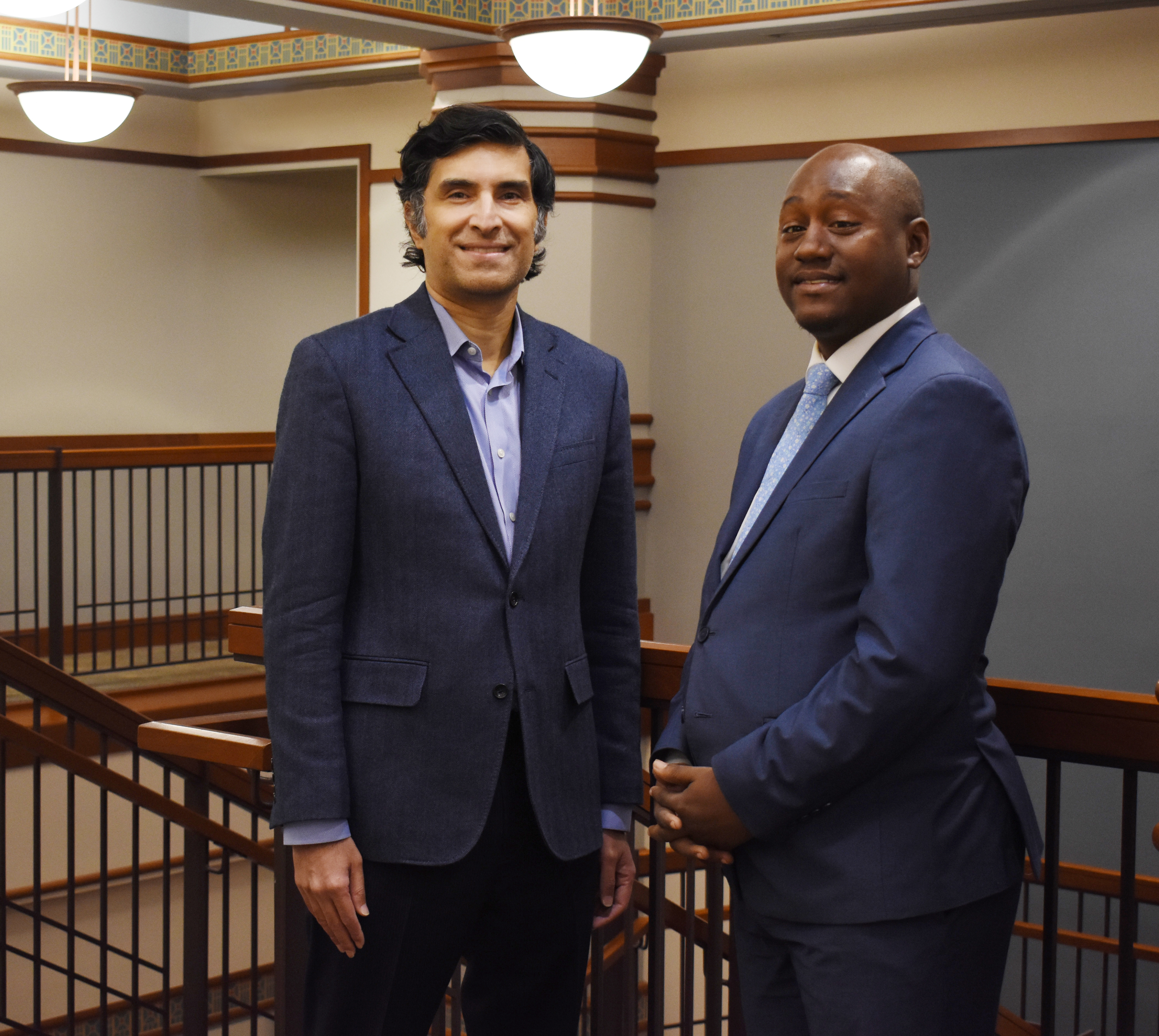 Manoj Mate and Nathan Bennett-Fleming
Manoj Mate and Nathan Bennett-FlemingAs a policy advisor in San Antonio to then-Mayor Julian Castro, Manoj Mate led the launch of the city’s first Mayor’s Fitness Council, bringing together partners from health departments, nonprofit organizations like the YMCA and a grocery store chain to help improve health and wellness.
“While government can be a major driver of progress, public-private partnerships involving the community, private sector, and nonprofits are critical to the success of transformational change,” Mate says.
Mate brings this experience in coalition building and a passion for social justice and equity to his new role as the inaugural faculty director of DePaul Law’s Racial Justice Initiative.
Launched in the fall, the initiative will bring together students, lawyers, researchers, policymakers and activists to collaborate on community-driven solutions to advance racial justice, specifically in Chicago and Illinois. Working at the nexus of public policy and the legal system, RJI will take an interdisciplinary approach to tackling racial injustice and inequity in policing, housing, economic opportunity, education, health and voting rights.
Mate, who in his decade as a legal academic has also worked on voting rights initiatives, is not intimidated by the long list of challenges the RJI aims to take on.
“We often have siloed approaches to policy change," he says. "Our initiative seeks to promote collaboration and build synergies across different sectors and constituencies.”
Nathan Fleming, the inaugural fellow, shares this view and connects it to his extensive experience in local government policy. For the last several years, he served as legislative and committee director of the Council of the District of Columbia, where he developed programs to address housing insecurity, reform policing and promote entrepreneurship in the nation’s capital.
Fleming is earning his doctorate in education from the University of Pennsylvania and views his role as a scholar and activist.
“I’ve been intentional about not only being in the marketplace of ideas and a producer of research, but also having an opportunity to implement what we're learning," he notes.
Providing both research and practical application was part of the reason Julie Lawton, clinical law professor, collaborated with advancement on the creation of the RJI through a private donor.
“There is significant need in Chicago for action. I wanted the initiative to really allow us to do something that would have an effect and not just be further conversation,” Lawton says.
Law students will also have the opportunity to contribute to the RJI through work as research assistants. The initiative will hire its first set of research assistants in the spring.
The RJI is an extension of the law school’s long-standing commitment to diversity, equity and inclusion, as well as the city of Chicago, says Jennifer Rosato Perea, dean for the college.
“We continue to address the pressing needs of the city’s most vulnerable populations through experiential learning, pro bono work, and our programs of excellence,” she says. “Through this initiative, we can create synergies and bring in more collaborators and partners to make this work even more impactful.”
Mate holds a JD from Harvard Law School and a doctorate in political science from the University of California, Berkeley. Fleming earned law and public policy degrees in a joint program between Berkeley and Harvard. Fleming also served his hometown as the District of Columbia’s Shadow U.S. Representative, an elected advocate for the district’s statehood and self-determination in Congress.